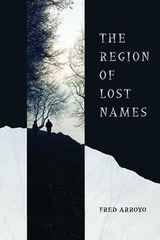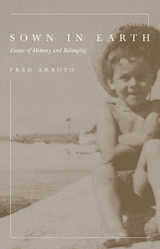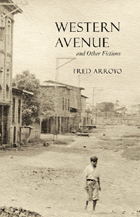
Ernest is searching for a place where he can live beyond his past. His family has returned to Puerto Rico, and Ernest remains in the States, desiring only distance from his memories of childhood displacement and work, his parents’ tumultuous relationship, and his own love for Magdalene. Magdalene, too, looks to move beyond her memories as she follows Ernest’s family home, seeking resolution to her mother’s hurtful secrets, her father’s unknown identity, and her love for Ernest.
As Ernest moves through the fields of Michigan, as Magdalene traverses the jungles of Puerto Rico and the shores of the Caribbean, they discover that their dreams and identities are linked within the framework of their families and their pasts. Together, Ernest and Magdalene must come to terms with the secrets and mistakes made by the previous generation, the histories of disloyalty and abandonment, of secrecy and sorrow.
Their struggles take place in a region of lost names, where loves and memories are banished and found. Fred Arroyo writes a story in two voices, following Ernest and Magdalene by turns in prose that is elegant and lyrical. His words evoke another world lush with the scent of salt spray, the taste of mangoes, and the rush of leaves, alive with characters whose ardors and pathos are achingly real. Arroyo explores the ebb and flow between past and present and themes that are enduring. Ultimately, Ernest and Magdalene must live with more than their memories; they must rediscover the intimacies of the region of lost names.

In Sown in Earth, Arroyo often roots his thoughts and feelings in place, expressing a deep connection to the small homes he inhabited in his childhood, his warm and hazy memories of his grandmother’s kitchen in Puerto Rico, the rivers and creeks he fished, and the small cafés in Madrid that inspired writing and reflection in his adult years. Swirling in romantic moments and a refined love for literature, Arroyo creates a sense of belonging and appreciation for his life despite setbacks and complex anxieties along the way.
By crafting a written journey through childhood traumas, poverty, and the impact of alcoholism on families, Fred Arroyo clearly outlines how his lived experiences led him to become a writer. Sown in Earth is a shocking yet warm collage of memories that serves as more than a memoir or an autobiography. Rather, Arroyo recounts his youth through lyrical prose to humanize and immortalize the hushed lives of men like his father, honoring their struggle and claiming their impact on the writers and artists they raised.

In these engaging and often gripping short stories, Fred Arroyo takes us into the lives of working-class Hispanic migrants and immigrants, who are often invisible while they work in plain sight across America. As characters intertwine and evolve across stories, Arroyo creates a larger narrative that dramatizes the choices we make to create identity, make meaning, and deal with hardships and loss. His stories are linked by a concern with borders, both real and imagined, and the power that memory and imagination have to shape and structure our lives.
Through his characters and their true-to-life situations, Arroyo makes visible both internal and external conflicts that are deeply rooted in—and affected by—place. A bodega, a university town, a factory, a Chicago street, some dusty potato fields: here is where we encounter ordinary people who work, dream, love, and persist in the face of violence, bereavement, disappointment, and loss—particularly the loss of mothers, fathers, and loved ones.
Arroyo's characters experience a strange wonder as the midwestern United States increasingly appears to be a place created by the Latinas and Latinos who remain out of the sight and minds of Anglos. In lyrical language weighted by detail, exquisite imagery, and evocative story, Arroyo imagines characters who confront the tattered connections between memory and longing, generations and geographies, place and displacement, as they begin to feel their own longings, "breathing in whatever was offered, feeling, deep in the small and fragile borders of my heart," as one character puts it, "that it came with a sorrow I could never betray."
READERS
Browse our collection.
PUBLISHERS
See BiblioVault's publisher services.
STUDENT SERVICES
Files for college accessibility offices.
UChicago Accessibility Resources
home | accessibility | search | about | contact us
BiblioVault ® 2001 - 2024
The University of Chicago Press









